Martin, Paul (1938-…), served as prime minister of Canada from December 2003 to February 2006. He succeeded Prime Minister Jean Chrétien. Martin’s Liberal Party lost a general election to the Conservative Party in 2006, and Stephen Harper became prime minister. After the election, Martin resigned as Liberal Party leader.
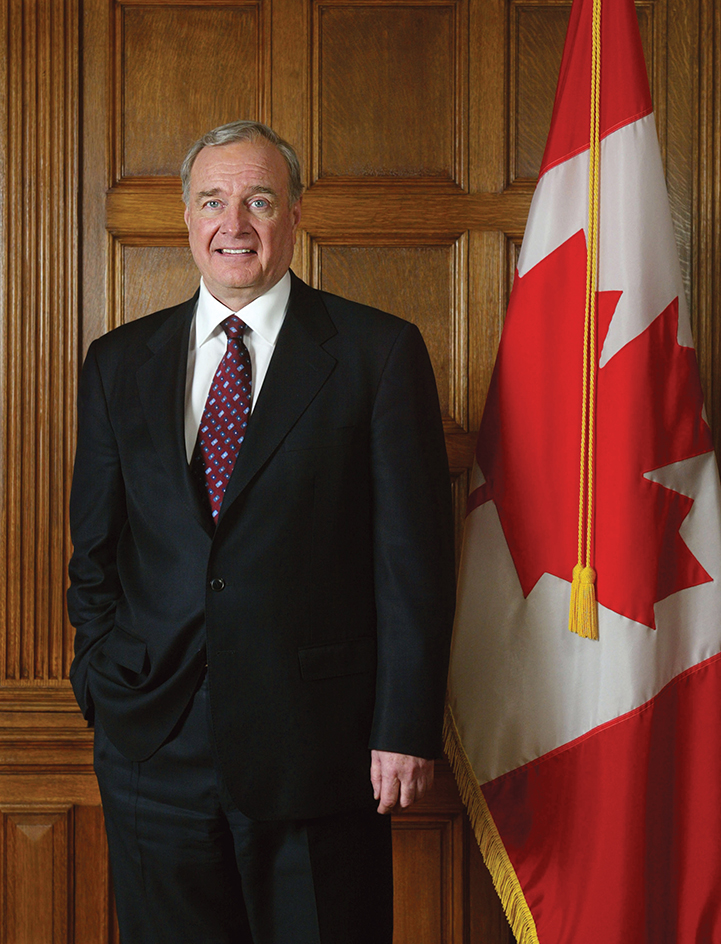
Martin, the son of a progressive politician, grew up in an intellectual, Roman Catholic family. An idealistic young man, he planned to work in the developing countries of the Third World. Instead, Martin became a business executive and experienced the tough realities of the corporate world.
Only two years after being elected to the House of Commons in 1988, Martin ran for leadership of the Liberal Party but lost to Chrétien. When the Liberals won control of the government in 1993, Martin became minister of finance and, with the support of Prime Minister Chrétien, helped eliminate Canada’s deficit. In June 2002, however, Martin left the Cabinet because of tensions with Chrétien.
In August 2002, Chrétien announced that he would step down as Liberal leader and prime minister in February 2004. In November 2003, Martin was elected leader of the Liberal Party. Chrétien then announced that he would resign as prime minister on December 12.
Early life
Boyhood.
Paul Edgar Philippe Martin was born on Aug. 28, 1938, in Windsor, Ontario, the older of two children. As a young man, he was known as Paul, Jr. His father, Paul, Sr., was a lawyer and a Liberal member of Parliament (MP) for Windsor. Martin’s mother, Eleanor “Nell” Adams Martin, was a pharmacist.
Martin caught polio when he was 8 years old and survived the disease with no ill effects. Following his recovery, the family moved to Ottawa, where his father served in Prime Minister William Lyon Mackenzie King’s cabinet.
Martin grew up in two distinct areas of Ontario. He spent his early childhood in a mainly English-language environment in Windsor, a city across the Detroit River from Detroit. Following the end of World War II (1939-1945), Windsor became part of a postwar industrial boom that drew immigrants from around the world. Windsor’s immigrant diversity and the racial conflicts in nearby Detroit helped shape Martin’s political thinking. He grew to view Canada as more socially tolerant than the United States.
In contrast to his early childhood in Windsor, Martin attended school in Ottawa, Ontario, a city on the border of the French-speaking province of Quebec. Ottawa, although Canada’s capital, was still a lumber town. It was politically and socially divided between French and English speakers, Irish and French Catholics, and lumberjacks and lumber mill owners.
Martin attended a French-language school, the ecole Garneau, where he learned of the tensions between English- and French-speaking Canadians. He got into fights as an English speaker in a French-language school. On his way home, he sometimes fought children from the Irish Catholic and public schools as well. He later attended the University of Ottawa High School, a French-language high school in Ontario. Martin came to realize the frustration of Ottawan French Canadians whose careers suffered because many of the best jobs required knowledge of English.
When he was old enough, Martin took summer jobs on lake boats and Arctic freighters. These experiences inspired a love of shipping. He often accompanied his busy father on visits to voters. Eventually, he developed an interest in politics to compete with his love of shipping.
College years and early career.
In 1958, when Martin was a student at St. Michael’s College at the University of Toronto, his father ran for the leadership of the national Liberal Party but lost to Lester Pearson. The younger Martin, for his own part, largely stayed clear of politics, even student politics. After graduating with a bachelor’s degree in philosophy and history in 1962, Martin briefly considered pursuing a master’s degree in philosophy. However, he decided to go to law school instead.
In 1963, Martin’s younger sister, Mary Anne, went to Africa with the aid organization Crossroads Africa. Impressed, Martin continued to talk about going to the Third World himself. But after he graduated from the University of Toronto’s law school in 1964, he took a short-term job with the legal branch of the European Coal and Steel Community in Luxembourg.
In September 1965, Martin married Sheila Ann Cowan, Mary Anne’s close friend and the daughter of William Cowan, his father’s law partner. The couple’s first son, Paul, was born in 1966. They later had two other sons: Jamie, born in 1969, and David, born in 1974.
At the time his first son was born, Martin planned to travel to Peru as a field officer with the United Nations. But Maurice Strong, the president of Power Corporation of Canada (commonly known as Power Corp.), in Montreal, invited Martin to take a job as his personal assistant upon completing requirements to become a lawyer. Strong advised Martin to apply his knowledge of global issues to business.
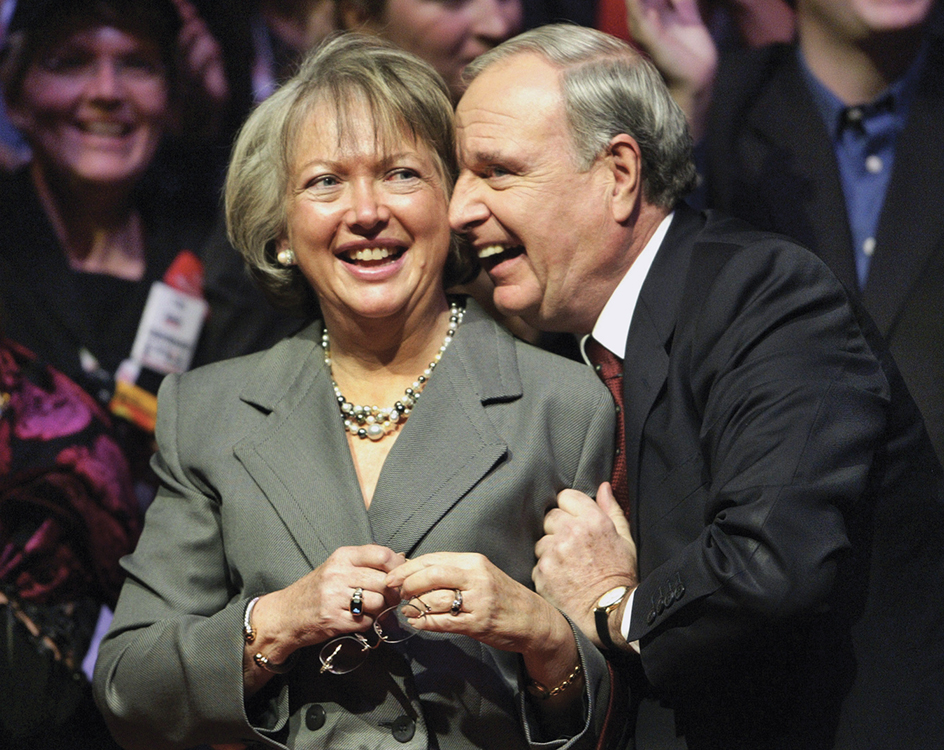
In 1966, after Martin was called to the bar—that is, became a licensed lawyer—he moved with his family to Montreal. There, he fell under the influence first of Strong, and then of businessman Paul Desmarais. Together, these men represented a combination of private enterprise and public life, realism and idealism, and the local and the global.
Montreal was an exciting place in 1966. Quebec had just undergone the Quiet Revolution, a dynamic period of modernization and social change led by the Liberal Premier Jean Lesage. Martin campaigned for two Liberals in the 1966 provincial election—a young economist named Robert Bourassa and a lawyer named Francois Aquin. The experience was, for Martin, a vivid introduction to Quebec politics.
In December 1967, Prime Minister Lester Pearson announced his resignation as Liberal leader. The elder Martin entered the leadership race as the senior member of the Cabinet and initially was favored to win. The younger Martin took a leave of absence from Power Corp. and threw himself into his father’s campaign. He organized voters in the Quebec ridings (districts), wrote speeches, and worked on policy. But in 1968, Pierre Trudeau entered the race and won the Liberal leadership. The younger Martin was severely disappointed.
During the administration of Prime Minister Trudeau, the elder Martin accepted an appointment to the Senate, leaving open his seat in the House of Commons. The younger Martin considered running for the seat, but his father felt strongly that he should first become financially secure. Paul, Jr., returned to Power Corp.
Business career
In 1968, Paul Desmarais became chief executive officer of Power Corp. Working under him, Martin helped revitalize the company, which had been performing below expectations. Impressed by Martin’s accomplishments, Desmarais named Martin president of Canada Steamship Lines (CSL), then owned by Power Corp., in 1973.
Martin remained president of CSL for 15 years. As a businessman, he was energetic, ambitious, and impatient for advancement. In 1981, when Desmarais told Martin he was going to sell CSL, Martin decided to buy the company. He became a partner of Laurence Pathy, another businessman, and the two bought CSL in August. This move proved highly successful and made Martin wealthy.
Martin was a demanding, hands-on, and innovative owner. He expanded the company’s use of self-unloading ships and transformed the firm from a lake-based shipping company to an ocean-based one. Despite Martin’s business successes, he remained interested in politics.
Political career
Member of Parliament.
In August 1987, Martin announced that he would run for Parliament in the riding of LaSalle-Emard, a working-class district in southwest Montreal. The Liberals lost the 1988 national election to the Progressive Conservatives, but Martin won his seat in Parliament. He entered the House of Commons 20 years after his father had stepped down and he himself had first considered running. From 1991 to 1993, Martin served as associate finance critic and as critic for the environment for the Liberal opposition in the House. Opposition critics present their party’s policies in a particular area and comment on those of the government.
First bid for party leadership.
In May 1989, John Turner resigned as Liberal Party leader. In 1990, Martin, fairly new to politics, ran against Jean Chrétien and three other candidates for the position. The leadership convention was scheduled for the weekend of June 23.
June 23 was also the deadline for the ratification of the Meech Lake Accord, an agreement to amend Canada’s 1982 constitution. The proposed amendment would have recognized Quebec as a distinct society in Canada. The accord caused disagreements within the Liberal Party. It became the central issue of the leadership race. Paul Martin strongly supported the agreement; Chrétien tried to minimize its importance.
During the convention, Martin criticized Chrétien’s position on the Meech Lake Accord, causing tension between the two men. While the convention was underway, the Meech Lake Accord failed. Chrétien won the party leadership. Martin finished second. He continued to serve in Parliament. In 1993, the Liberals won a national election and Chrétien became prime minister.
Minister of finance.
Chrétien invited Martin to serve as finance minister. Traditionally, that post had been unpopular and offered little opportunity for advancement. After his initial reluctance, Martin accepted the job.
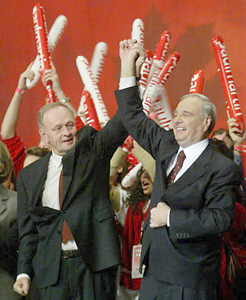
As finance minister, Martin eliminated a huge national deficit. His 1995 budget greatly reduced federal expenditures on provincial health care and education and on all national spending programs. The balanced budgets and large surpluses that resulted beginning in 1998 enabled Martin to introduce tax cuts.
While serving as finance minister, Martin was selected as the first chairman of the G-20. This group, which now consists of 20 industrialized and emerging-market nations, promotes international stability. Martin and the finance ministers from six other countries founded the group in 1999.
The 1995 Quebec referendum.
In 1994, the Parti Quebecois, a Quebec separatist political party, returned to power in Quebec. In the fall of 1995, Jacques Parizeau, the party leader, called a referendum on sovereignty (independence) for Quebec. The referendum proposed a special economic and political relationship between an independent Quebec and Canada.
As finance minister, Martin feared that Quebec independence would harm the Canadian economy. Martin exaggerated this threat so greatly that many voters came to doubt all the economic arguments against Quebec sovereignty. In an extremely close outcome, the referendum failed. But Martin’s performance in the campaign suggested to some that he lacked political judgment.
Tensions with Chrétien.
In 1997, the Liberal Party won reelection. Martin’s supporters increasingly felt that they should begin preparing for the next party leadership campaign. In the spring of 2000, before a Liberal convention, a group of Martin organizers and supporters met in Toronto to discuss strategy. News of the meeting leaked out, and some of Chrétien’s supporters concluded that Martin was trying to push him out of office. Chrétien called an early general election in the fall of 2000 instead of retiring from politics, as some of Martin’s supporters had suggested he do, and as Chrétien later said he planned to do.
Martin, increasingly frustrated, stayed on as finance minister but became more and more active on the international scene. He worked with the World Bank, the International Monetary Fund, and the G-20.
The Liberal Party had a leadership review vote scheduled for February 2003. Martin’s supporters began working to win control of Liberal voter associations and provincial organizations in preparation for that vote. In May 2002, Chrétien ordered all Cabinet ministers to stop their leadership organizing. Martin told reporters that he would have to reflect on his options. In June, he left the Cabinet. It was unclear whether he had resigned or been fired.
Liberal and national leader.
Chrétien’s supporters soon realized that Martin had taken control of the base of the Liberal Party and that it would be impossible for Chrétien to win the Liberal leadership review set for February 2003. At the Liberal summer caucus meeting in August 2002, Chrétien announced that he would step down as party leader and prime minister in February 2004. Martin spent the next 15 months campaigning for the party leadership. At a Liberal leadership convention in November 2003, Martin was chosen as party leader. Chrétien concluded, in effect, that it would be unworkable for him to stay on until February. He announced that he would step down in December. On Dec. 12, 2003, Paul Martin became prime minister, and his new government was sworn in.
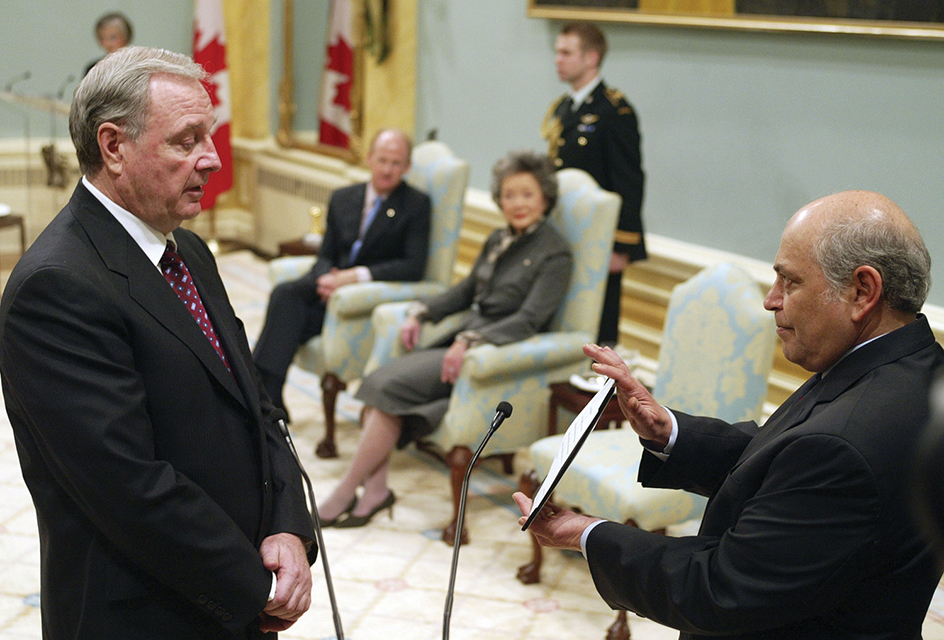
In a national election held in June 2004, Martin led the Liberal Party to a narrow victory. As a result of the election, the Liberals formed a minority government, and Martin remained as prime minister. In a minority government, the governing party holds the largest number, though not a majority, of seats in the House.
In November 2005, the opposition parties in the House passed a vote of no confidence in Martin’s Liberal government. The vote followed an official report that the Liberal government of Jean Chrétien had misused public funds to benefit the Liberal Party and pro-Liberal advertising firms. Martin was forced to dissolve Parliament and call for a new election to be held in January 2006.
Stephen Harper led the Conservatives to victory in the January 2006 election. He was sworn in as prime minister in February. Martin resigned as leader of the Liberal Party in March. However, he served as a member of Parliament for the LaSalle-Émard riding until 2008.
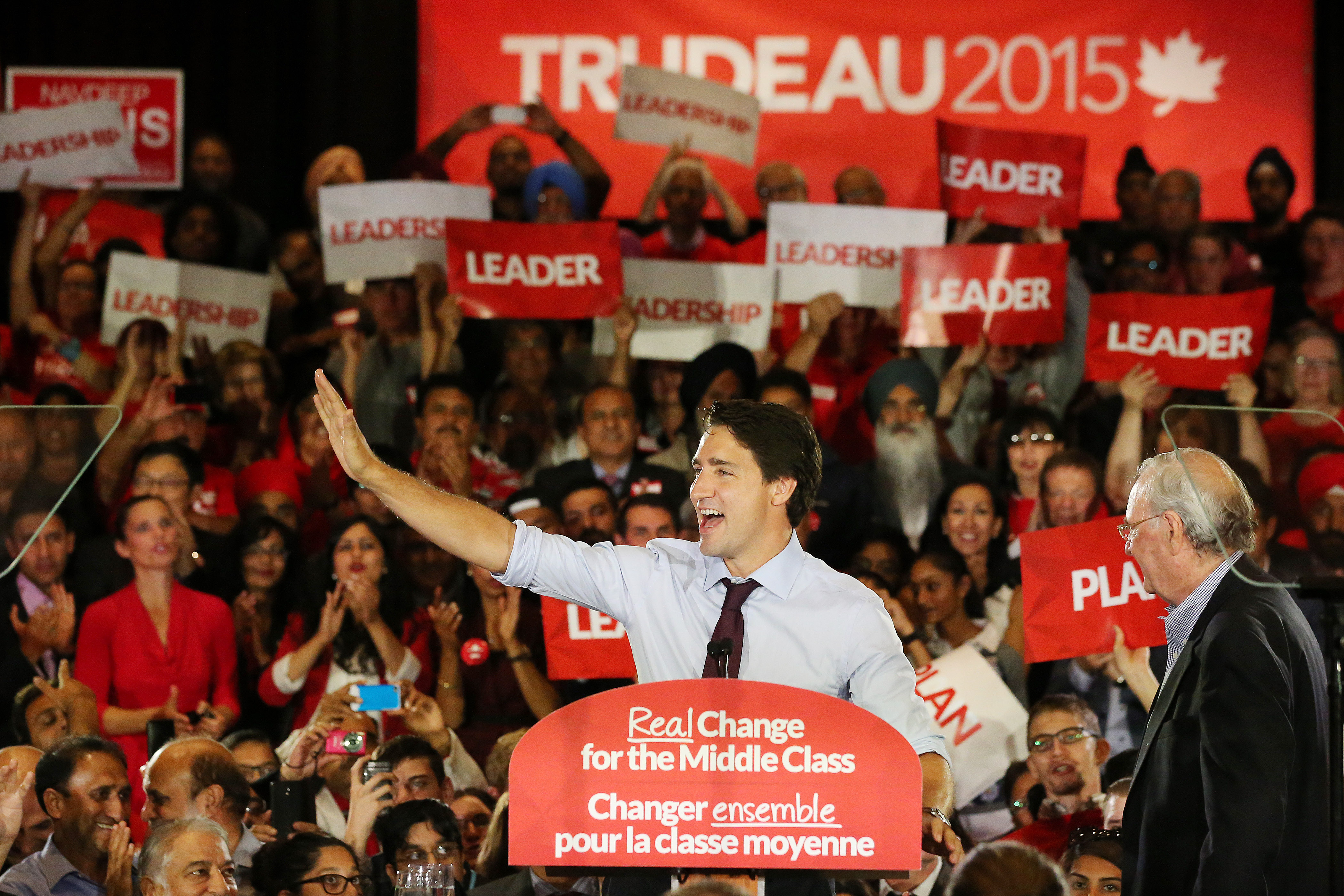
See also Chrétien, Jean .
